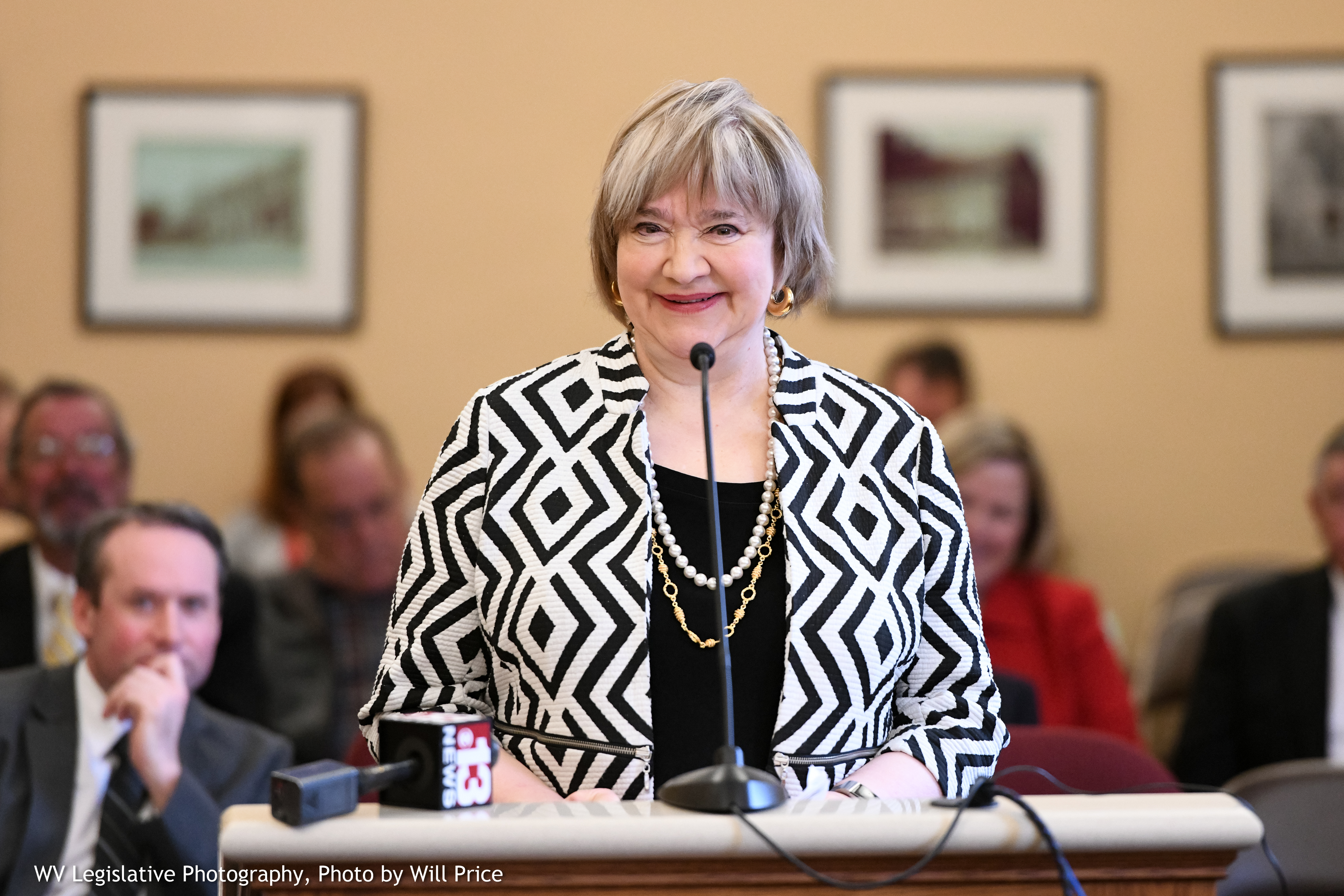CHARLESTON, W.Va. — West Virginia Supreme Court Chief Justice Margaret Workman told reporters the court will extend its cooperation to the state Ethics Commission if that agency begins to investigate spending by justices.
“Absolutely — as well as the Judicial Investigation Commission,” Workman said in a hallway conversation with reporters at the state Capitol on Monday.
Workman said she could not comment on the existence of any other state or federal investigations looking into spending by justices.
“I’m not at liberty to describe anything like that,” Workman said.
Workman made her comments to reporters after concluding separate statements to lawmakers who were examining a legislative audit of the Supreme Court.
MORE: Read the legislative audit of the West Virginia Supreme Court.
The audit concluded that justices Menis Ketchum and Allen Loughry had used state vehicles for personal benefit, possibly violating tax law by not reflecting the perk on their income taxes.
The audit also concluded that the justices might have violated the West Virginia Ethics Act.
Ketchum has repaid the state for hundreds of dollars in question from his use of state-owned Buicks. And he asked for his W-2 forms to be updated retroactively.
Loughry issued a brief memorandum saying he disagrees with the audit’s findings.
Neither of the two justices appeared before the Post Audits Subcommittee, which includes six legislative leaders from the House and Senate.
Workman did speak before the committee, pledging continued cooperation as well as assuring steps for greater controls over spending.
“I am concerned,” Workman told reporters. “I think everyone who hears about this is concerned. And the court has already taken steps to tighten policies.”
Workman said it was important to her, as chief justice, to speak publicly about the court.
“I came here today not to defend any of the wrong conduct or issues with state cars — or to defend any one justice — but I came because I am the chief justice of this court and my idea of leadership is to show up and answer questions.”
The controversy has unfolded over several months.
It started with stories by WCHS-TV about renovations in the court focused on a $32,000 couch in Loughry’s office, the $7,500 wooden West Virginia medallion inlaid into Loughry’s floor, the $28,194 rugs in Justice Robin Davis’s office and the $130,654 for extensive renovations of Justice Beth Walker’s chambers, even though those chambers were upgraded just seven years ago.
“The amount of money spent on renovations is indefensible. You’ve got to remember that each justice on the Supreme Court ourt is independently elected, and no one of us can control another one. Each justice has to speak for their expenditures,” Workman said.
Speaking to lawmakers and again in front of reporters, Workman acknowledged justices had not focused as much as they possibly should have on administrative matters.
“We have worked very hard as justices, and we aren’t accountants or administrators. For too long, we were busy on judicial work and not paying enough attention to the administrative side,” she said.
The audit specified — and Workman corroborated — that justices at a 2016 judicial conference discussed among themselves the appropriate use of state vehicles.
Workman described that discussion as coming to an abrupt halt.
“Concern was expressed as to the use of state vehicles. We discussed it at length. I wrote an internal memorandum that I could not support the open use without designating place and time and the purpose of the trip.
“Later, because there was so much disagreement, I believe Menis just said it was discussed. But there was conflict amongst the justices as to what the policy should be.”
Late last year through early this year, the Internal Revenue Service conducted its own audit about the court’s policies on the use of state vehicles.
The legislative audit described the IRS probe, and Workman also confirmed it.
“It was all related to tax issues,” Workman said. “As part of that audit, the Supreme Court was able to settle the matter with the IRS. That was in connection with some car use, some of the 15 cents per mile reimbursement and some of the per diem.”
Both the legislative audit and Workman said the IRS matter has been resolved.
“The IRS determined those were taxable matters. The Supreme Court paid the cost, but they didn’t place any penalties on us. The IRS at that time determined that employees to whom W-2s were not issued, they were not at fault and therefore there was no need for us to issue amended W-2s,” Workman said.
“The court thus far has taken the position that because the IRS, at least implicitly, indicated to us that all of those tax issues were settled by the settlement agreement, we’ve taken the position and were informally told that we don’t need to issue amended W-2s.”
Workman said that issue might need a second look, though.
“However, I’m going to recommend to the court that we go back to the same IRS agents and get a clarification on that issue,” she said.
This coming November, West Virginia residents will vote on a state constitutional amendment that would give the Legislature more oversight over the court system’s budget.
Right now the court system’s budget is largely independent because of the constitutional separation of powers between the branches of government.
Workman said she still supports judicial budgetary independence.
“I believe the Supreme Court budget should remain independent,” she said. “I don’t know that that would occur. If it does not occur and the Legislature does take over, then we would cooperate. But I believe judicial independence is so important. I regret that there’s a rush to action due to this one period of expenditures.”
She acknowledged that the court has much work ahead in regaining public trust.
The day I was named chief justice, I said we’re going to begin the long job — it’s going to take a long time — to restore public confidence,” Workman said. “That’s one of my primary goals.”

